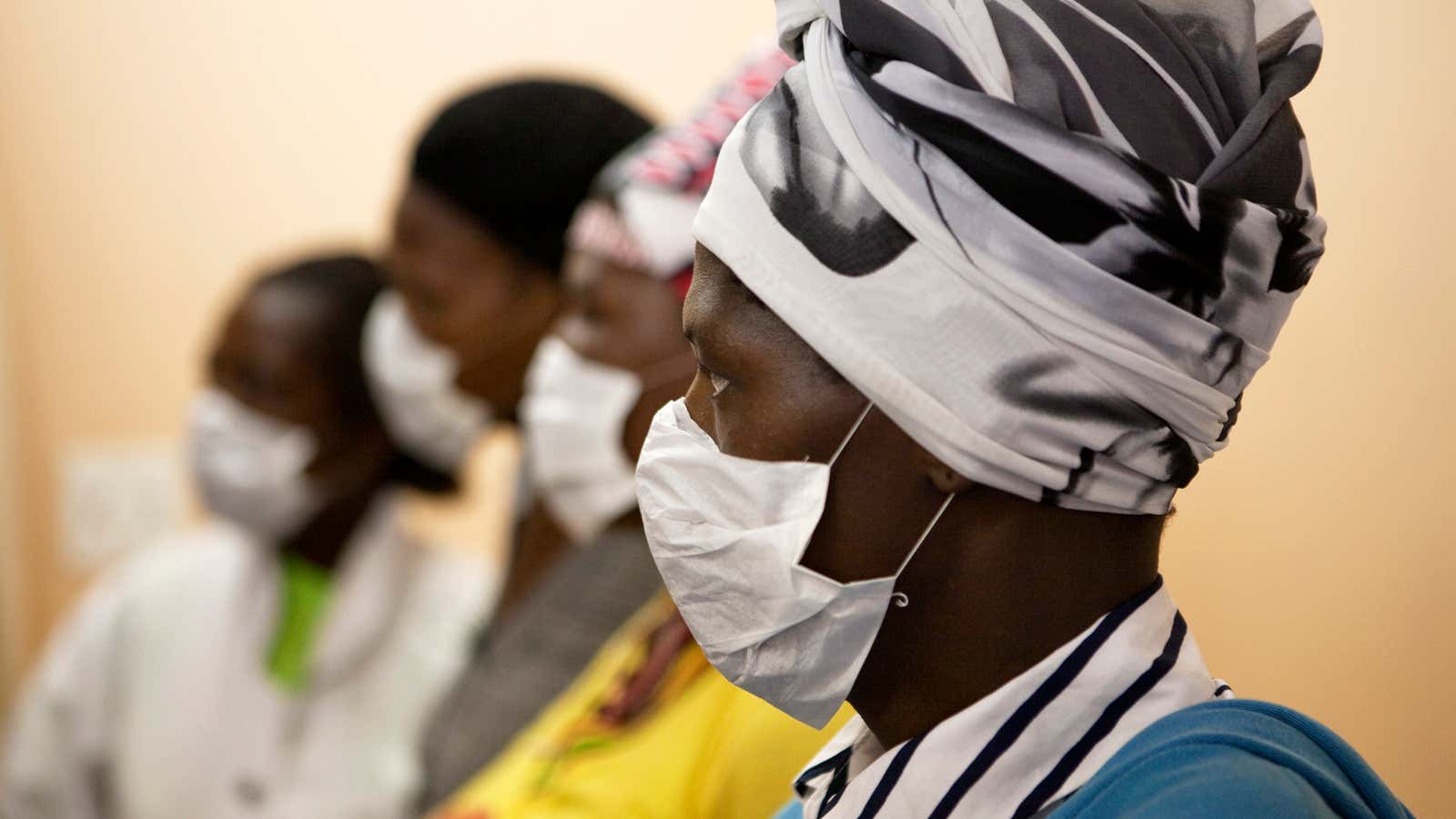The first recorded cases of covid-19 in South Africa and Kenya in March 2020 spawned a maelstrom of tweets reflecting some people’s fears and anxieties about the virus, as well as surfacing other deeply rooted prejudices.
“Imagine dying from an overseas disease when you don’t even own a passport #COVID19SouthAfrica” tweeted one user.
“So, you guys say china produces fake. But u [you] trust coronavirus,” tweeted another.
These tweets, along with thousands of others, became part of a study on Twitter conversations in South Africa and Kenya during the early days of the pandemic that highlighted enduring postcolonial issues of race and power.
According to the study, published in the Journal of African Media Studies this month: “… the covid-19 pandemic provoked strong racial fear in both South Africa and Kenya…Both the Chinese in Kenya and the white communities in South Africa were blamed for bringing in the first cases of covid-19 through their travel escapades.”
Covid-19 was labeled a ‘disease of the rich’ and one of privilege
The study argues that in these countries, both former British colonies, Twitter has reinforced divisions in conversations occurring both online and offline around power and racialized politics, panic buying, ‘othering’ and classism. It also argues that “the rage towards white communities and powerful and privileged class can be read as a fatigue of the existing postcolonial issues.”
The study was co-authored by Job Mwaura, a postdoctoral research fellow at the University of Cape Town and Ufuoma Akpojivi from the University of Witwatersrand. In an interview with Quartz, Mwaura said they focused on Kenya and South Africa in particular because of their “vibrant social media presence” that enabled “organic” and “carefree” conversations to take place.
He also spoke of freedom of speech enjoyed in these countries, as compared to other African countries including Nigeria and Uganda that banned popular social media platforms during the pandemic.
The study shows that racialized conversations online became particularly charged in South Africa given that the first case of covid-19, according to the government, was brought in by a white South African who had traveled back from Europe.
A South African user at the time tweeted: “One white man decided to go home in Europe and came back to South Africa sick. Now everyone must suffer because of him.”
Meanwhile, a plane from China that landed in Nairobi on Feb. 26, 2020, prompted fears that the passengers on board may have brought the first cases of the virus into Kenya.
“I have been wondering how a normal government that cares about it’s people could allow the Chinese plane to land at JKIA [Jomo Kenyatta International Airport], then I realized the people in government are using imported brains from China…” tweeted a Kenyan user.
The report also says that the current relationship between China and Africa, though not built on colonial history, is characterized by Chinese power in infrastructural projects and the import of consumer goods across the continent “can be interpreted as a postcolonial issue of domination.”
Online bias mirroring offline bias
Mwaura said that these sentiments are echoed in public spaces both online and offline.
“There’s a very thin line between offline conversations and online conversations – they influence each other. The issue of race and othering is very deep-rooted and our analysis speaks a lot about the kind of racial issues that are happening in the post colonial states.”
‘Panic buying’ was another phenomenon that saw people stockpiling toilet paper, food, and other essential items, which reflected similarly resentful discussions around power, race, and class online. “While it cannot be proven that only white communities in South Africa did panic buying, Twitter conversations indicated that privileged white communities are the only ones who participated in panic buying. In Kenya, conversations on Twitter regarded those who participated in panic buying as selfish and ignorant middle class,” said the study.
Mawaura says that the content and the sentiment behind these tweets need to be addressed from multiple angles.
“I think the government should spearhead some of these issues of inequalities and racial fears to reduce their impact within the society.” He added that social media platforms also have a responsibility to “give a free space for people to say what they want but with limitations so that they don’t infringe on other people’s rights and freedoms. ”
Mwaura plans to conduct further research and analysis of another data set of over 300,000 tweets from Kenya and South Africa after the omicron variant was first reported to the WHO by South Africa in November. This incident saw a highly criticized spate of travel bans against many African countries, an act that was seen as unfairly punishing South Africa for reporting the variant.
“I’m almost sure that the issues of postcolonialism will emerge in the analysis of tweets about the omicron variant,” he said.
In Africa and around the world, people can use social media to positively affect change or to negatively reinforce and perpetuate divides, as this study has shown. But Mwaura says he still believes in the power of social media as a democratic good.
“People have an opportunity on digital media platforms to find harmony,” he said. “I would see it as a ripple effect such that whatever is happening in the offline spaces comes into social media spaces….We can learn a lot when we focus on ordinary conversations in digital media spaces, and we can put in programs and strategies that are quite important and helpful.”
Sign up to the Quartz Africa Weekly Brief here for news and analysis on African business, tech, and innovation in your inbox.
